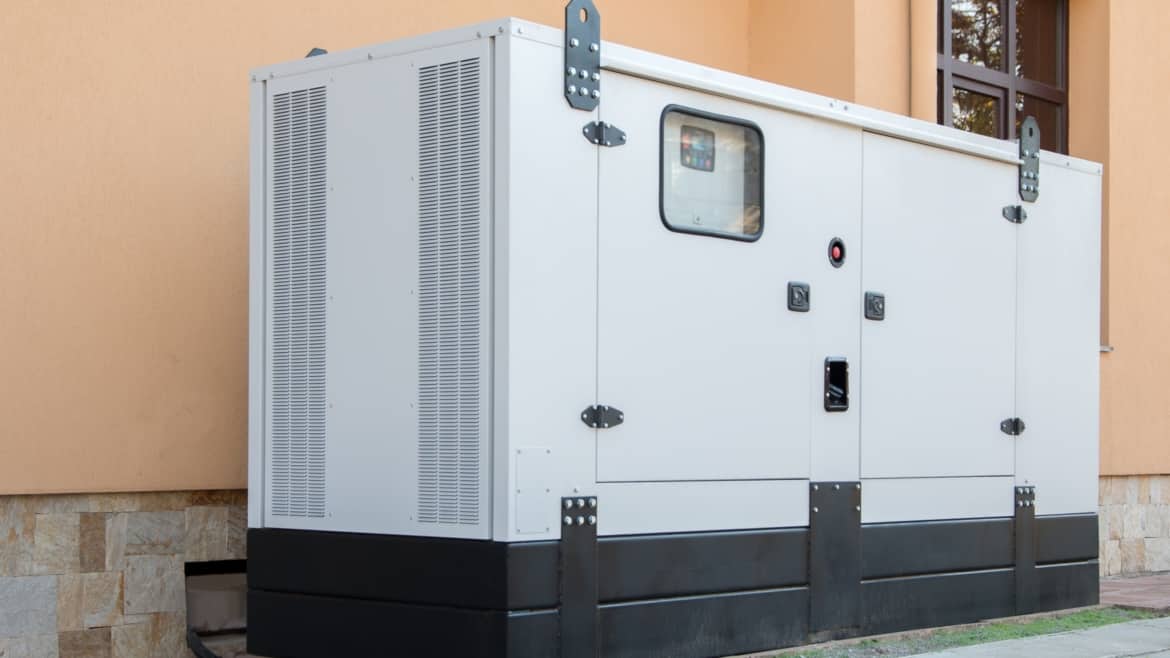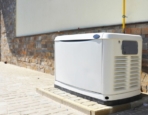Have you ever been watching television or just going about your day and a power outage comes out of nowhere, interrupting everything?
The simple fact is, you can never be sure when the power’s going to go out. There could be an accident, technical failure, or perhaps a storm rolls in. Either way, power outages are a major disruption to your day-to-day life and can be quite detrimental to businesses as well.
Not only do electric generators solve the power outage problem, but they can be useful in a variety of different ways depending on which type you have. To keep your home or business prepared each and every day to handle a power outage, a generator acts as a reliable backup electrical supply.
We’re a one-stop-shop for all things electric generators. Our professional electricians offer in-home consultations, model selection, installations, and maintenance services for electric generators so you are covered at all times.
How electric generators work
In order to output usable electricity, generators must first convert mechanical energy into electrical energy. They don’t actually create electricity; instead, they use mechanical energy from an external source (typically diesel, gasoline, propane, or natural gas) to move the wire in its windings through a magnetic field.
This electromagnetism causes electrons to flow through the copper wire, successfully converting mechanical energy into electricity. The electricity is then pushed through an external electric circuit where it becomes ready for your use.
For more details on the purpose of various parts that make up an electric generator, you can check them out here.
The 3 types of generators that you can choose from are portable, inverter, and standby:
Portable
This is perfect for things like camping, off-roading, working in the field, at a construction site, or simply hosting an event in your backyard. Typically gas or diesel, these generators are all about having the convenience of electricity at your fingertips no matter where you are. While not as powerful as a standby generator, the can run a few things at the same time.
Inverter
While each type of generator has its strengths, neither can compare to inverter generators in size. These tend to be quite small, allowing for only a couple of appliances to be plugged in, but offer high-quality power output. The power supplies in our appliances and devices require AC (alternating current) power in order to properly run. Conveniently, an inverter generator converts DC (direct current) power to AC (alternating current) power.
Standby
The largest of all 3, a standby generator acts as a backup electrical system on its own. Because they’re supposed to remain stationary and take on a much larger load in the case of a power outage, having one of these installed for your home or business is ideal.
With an automatic transfer switch attached, as soon as the power goes out, the standby generator kicks on, barely missing a beat. Due to the size of these generators, they can output much more power making them a necessity for places such as hospitals.
While it never hurts to have all 3 types of generators to accomplish different tasks, it’s imperative that you have a backup plan for power outages. For an assessment of your electrical infrastructure and to determine how strong of a generator would work best for your household or business needs, our professional electricians are only a call away.
Generators for residential properties
For your home, a generator that is able to handle the necessities of your home to keep you and your family comfortable is ideal. This includes running your HVAC system, water, and some household appliances.
While a portable generator can be strong enough to run a refrigerator and a few appliances, it may be difficult to maintain for a moderately long power outage. Your best option is to have a backup, standby generator to take over.
Depending on the layout of your home, how strong the standby generator you need varies. For example, if you have a large space, thus a bigger furnace, it will require a stronger generator to keep your home heated in the case of a power outage. On the other hand, houses that are connected to city water, instead of having their own well with a pump, require less energy to keep the water running.
Typically, electric generators that output anywhere from 3000 to 6500 watts will be sufficient for running an entire house — this varies based on the individual needs of a home. At Red Ryno Energy, we cover all residential generator services from in-home consultations and model selection, to installations and maintenance services.
Generators for commercial properties
Every business will be affected by a power outage in one way or another, some more than others. For example, grocery stores, restaurants, butcher shops, and other establishments that rely on refrigerated products will be devastated by a moderately long power outage. Others, such as hospitals and tech companies, would also be thrown into disarray.
Standby generators again are the go-to choice for a backup electrical system. With an automatic transfer switch, hospital machines will continue running, saving lives. For businesses, if a power failure may result in lost data, having a backup power supply that can switch seamlessly will keep you from losing a day, or even a week’s worth of work.
For anyone who works out in the field or on a construction site, a portable generator is always needed. Not only will the workers be able to keep their power tools charged, but a heater can be added during the colder months to improve their quality of life while on the job.
Stay safe and prepared for power outages with an electric generator. For more information or any inquiries about an in-home consultation, model selection, installation, or maintenance for either a residential or commercial property generator, contact us today. We can help.



